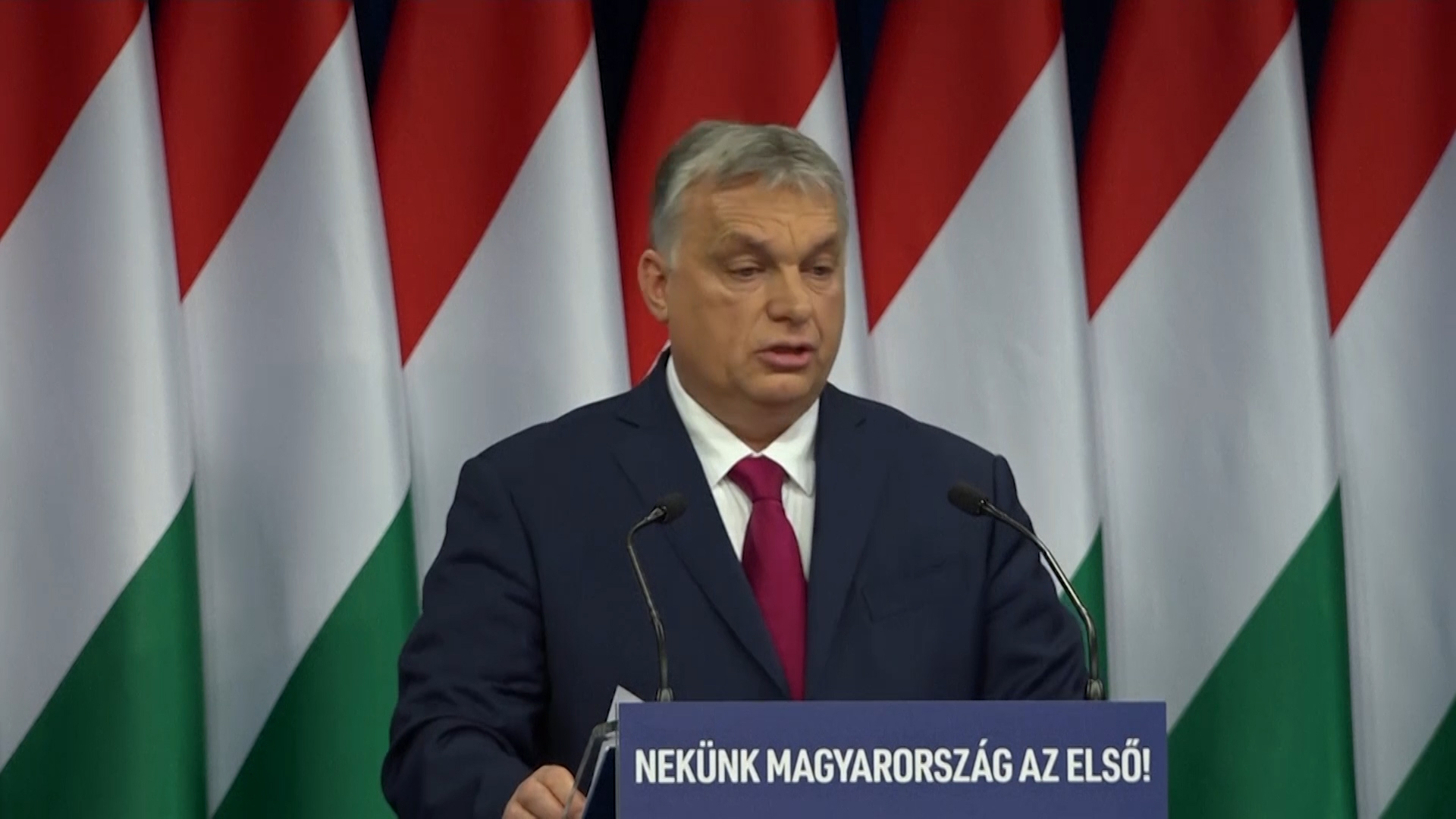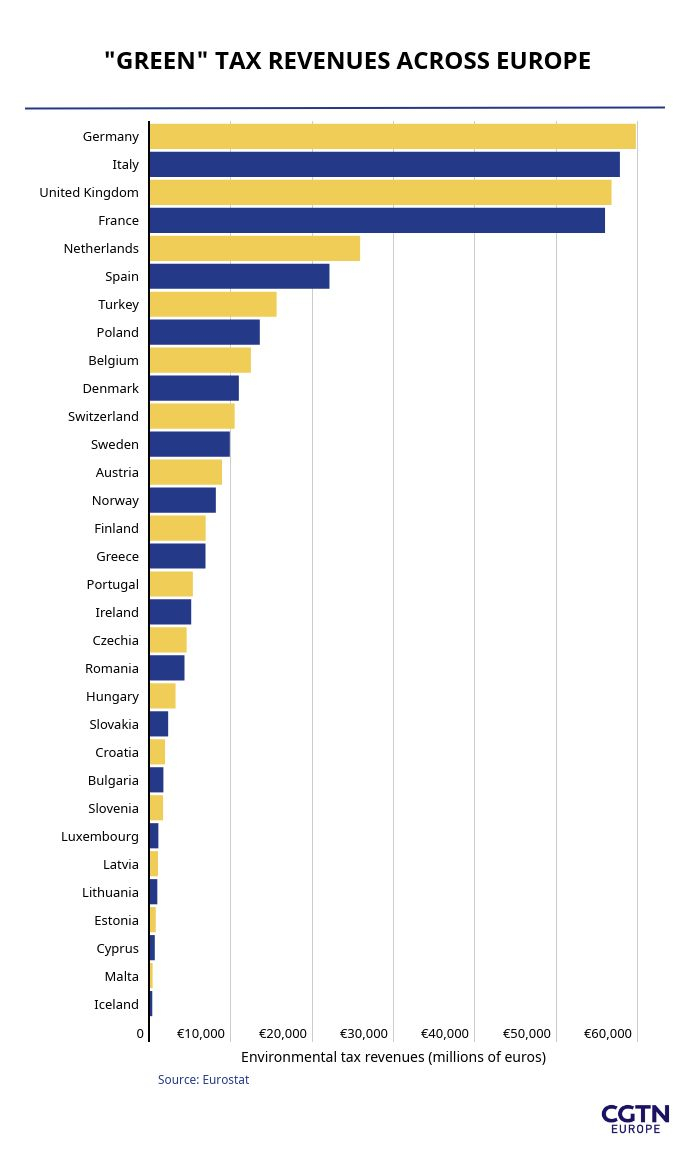"Lifeisn'teasy,businessisn'teasy,ifyoubecomeamarketleader,probablysomebodywilltryandpullyoudown."
Juliet Mann spoke to PaulScanlan,Huawei's chieftechnologyofficer, at the company's event in London. You can read more about the firm's outlook and future plans below.
Staying with mobile tech, AppAnnie has reported a record number of mobile applications in China since the COVID-19 outbreak. As people were confined to their homes thanks to the virus prevention methods, 222 million downloads were registered by Apple in the first week of February.
Elsewhere, MGM Resorts - the hotel chain famous for several Las Vegas behemoths - has admitted to encountering a very serious tech issue. It's said its cloud computing platform was hacked, and more than 10 million guests information may have been stolen.
Sticking with the U.S. for now, Boeing's bad luck may have started to turn... depending on your point of view. Washington State's legislature is poised to remove a tax break that the EU was eyeing up as a trigger for tariffs in retaliation for U.S. taxes on Airbus.
But back in Europe, EU leaders are gathering in Brussels today, hoping to come to an agreement on the bloc's long-term budget. CGTN spoke to Dr. Lee Jones of London's Queen Mary university to understand the issues at play, while Isobel Ewing sent a report from Budapest, where the government is accused of misusing its previous EU cash.
Finally, which country in Europe raises the most "green" taxes? Scroll to the bottom of today's email to see which nations are using levies to promote eco-friendly living.
Happy reading,
Patrick Atack
Digital business correspondent

Chinese Mainland stocks surged by the market close on Thursday, with the country cutting its loan prime rate (LPR) as it grapples with the economic impact of the ongoing COVID-19 outbreak. In a move that was largely in line with expectations, the People's Bank of China announced a reduction in the lending benchmark rate. The 1-year LPR was reduced by 10 points, while the 5-year LPR saw a 5 point deduction.
Air France-KLM sees earnings drop by at least $216m due to COVID-19. As the first European carrier group to announce a 2020 forecast, the Franco-Dutch airline may be a bellwether for the air travel industry, which is one of several hit hard by the virus.
Smartphone users in China downloaded a record number of games and other apps as COVID-19 confined tens of millions of people to their homes, resulting in a boost to the $150 billion global games industry. More than 222m downloads were made in China through Apple's online store in the week starting February 2, according to data provided by analytics provider AppAnnie.
MGM Resorts, which owns Las Vegas hotels and casinos such as the Bellagio and the MGM Grand, has revealed a massive hack of its cloud server. It's thought the names, addresses and passport details of as many as 10.5 million guests may have been accessed. The group said it was "confident" no financial information was seen by hackers, but 1,300 guests were informed passport numbers and other personal information was stolen.
A decision in the far north west of the U.S. may have major implications for global trade, if the state legislature in Olympia, Washington, decides to remove a tax break for airplane manufacturer Boeing. The U.S. introduced tariffs on Airbus in 2019, but the WTO is likely to rule the state tax break for Boeing also counts as state aid, and therefore will allow EU duties on the US plane maker. If Washington state removes the break that could be avoided.
Chinese province Hebei, which borders Beijing, has made a fund worth $7.1 billion available to assist the local economy amid the coronavirus outbreak. It is aimed at helping firms restart production, and ensuring the Winter Olympics venues continue to make progress.
Royal Dutch Shell has projected Liquid Natural Gas demand to rise sharply over the next two decades, as it is seen as a "clean" fossil fuel. Global LNG demand could reach 700 million tonnes by 2040. European imports of the alternative fuel, often burned to generate electricity by the energy sector, jumped 74 percent in 2019.
At an event in London, the executive director and president of Huawei's carrier business group Ryan Ding said the company plans to invest $20m in 'innovative' 5G applications over the next five years. Ding also said Huawei has been awarded 91 commercial 5G contracts to date and has shipped more than 600,000 5G Massive MIMO active antenna units.
A new £20 note has been released by the Bank of England. It's the third polymer note, following the £5 and £10 and means only the £50 note is still paper. The new note features the artist JMW Turner, who replaces economist Adam Smith.
Leadersof15EUcountrieshavestronglyrejectedproposedcutstothefundingtheyreceive. The"cohesionfunds"helppoorareas,butcriticssay-somegovernmentsaremisusingthefunds,andthismustbeaddressedbytheEU.
OurcorrespondentIsobelEwingsentthisreportfromBudapest.
03:00

Dr. Lee Jones is a Reader in International Politics at Queen Mary University of London and spoke to CGTN about the ongoing negotiations for the seven-year EU budget.
Dr. Jones, the EU budget negotiations have always been rather fraught gatherings. Is this going to be any different?
It's a little bit different because of Brexit. The UK was a big net contributor, contributed about 15.6 percent. So its departure leaves a hole of around $79 billion in the EU budget over the next seven years. So that will sharpen these divisions which have been there all along, this time around.
As you say, the EU membership seems to be split. Coalitions of member states seem to be forming in terms of those who want increased contributions and those who want to rein in EU spending. Who do you reckon is going to win?
But that's not new, I mean, the U.K. used to be on the side of the so-called frugal four, and in 2013, the last time the EU budget was negotiated, the U.K. said that they'd managed to score a victory because they reined spending in.
I suppose in the classic EU way, we'll be a fudge between the two sides. But the frugal four have really been digging in their heels and saying we're going to stick at 1 percent of GDP, not going to increase it at all. And we want to end the rebates to the countries that are net contributors as well, which Margaret Thatcher negotiated in the 1980s.
As you say, all EU countries are paying less than one percent of their annual earnings into the EU pot. Relatively speaking, it's not a huge amount of money, but I guess for certain countries there is a lot of pressure domestically to reduce contributions?
It's that the EU is so unbalanced in terms of contributors.
So the frugal four, plus Germany, account for three-quarters of contributions to the budget. So you've got a very, very narrow range of people who are funding the EU and that reflects the very uneven nature of the economies within the EU.
I mean, there are some countries that are really very poor and have become a lot poorer because of the eurozone crisis. No wonder they want to hold on to structural funds. There are problems around corruption and the misdirection of EU money in places like Hungary and Italy.
But there is also a case of real economic imbalances and considerable socio-economic distress in a lot of countries in the periphery of Europe, too.

Which nations are trying to help the environment, and raise capital? Germany, Italy and France lead the way. Energy taxes accounted for the largest share (77%) of the 2018 environmental tax revenue, followed by transport taxes (19%), and pollution and resource taxes (3%).
 简体中文
简体中文




